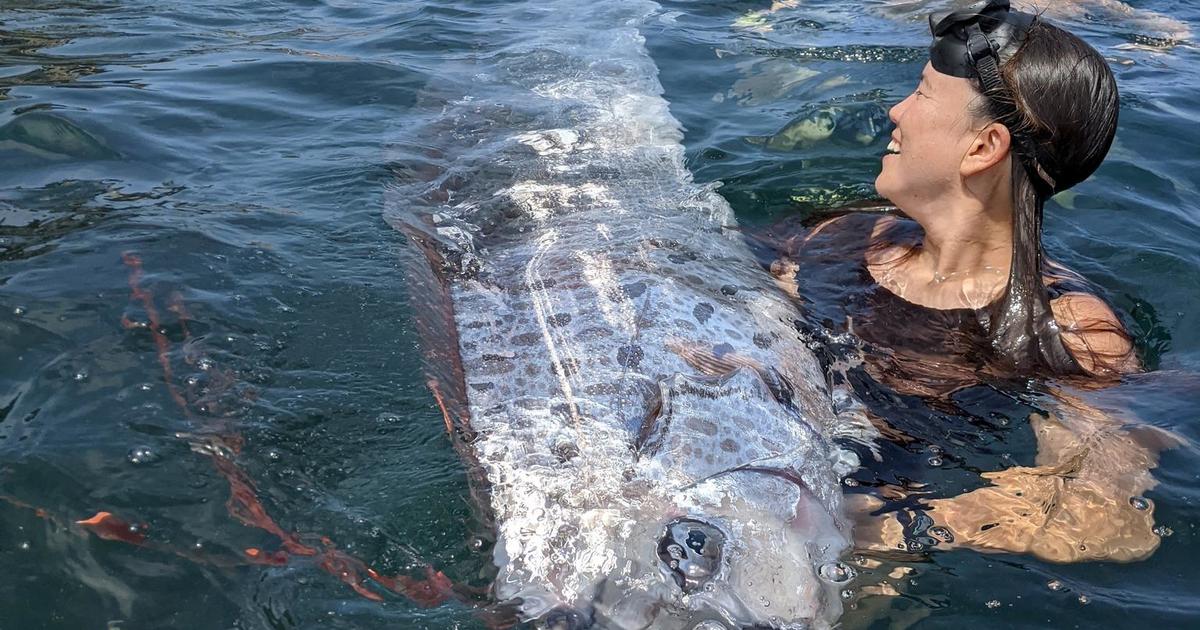Kayakers and snorkelers exploring the Southern California coast spotted an extremely rare oarfish, nicknamed a “doomsday fish” since they are seen in some parts of the world as harbingers of imminent disasters. It’s one of less than two dozen confirmed sightings of an oarfish in the state in over 120 years, according to UC San Diego’s Scripps Institution of Oceanography.
The oarfish is a “strikingly large, odd-looking fish” with a long, silvery, ribbon-shaped body, according to the Ocean Conservatory. The fish can grow to more than 30 feet long, and have large eyes and “foreboding” red spines in a crown-like cluster. Typically, these fish are deep-sea dwellers and thrive in waters that are the least explored by scientists.



I wonder if their tendency to appearance before an earthquake is just coincidence, or if there are signs, like changes in water temperature, changes in current, bursts of electromagnetic energy, etc, that can indicate that an earthquake is going to occur several days in advance; and oarfish are sensitive to it, resulting in them surfacing and dying from depressurization.
Considering other animals have been known to leave areas, there seems to be something we are missing or currently unable to detect/measure.
It’s clearly the other way around. These animals leave, causing plates to slip because of reduced weight.
I don’t know enough about oarfish to refute this claim so I’ll assume it’s likely accurate.
My understanding was that fault lines create low pressure waves that animals can detect before an earthquake occurs. I think these days we have equipment that can generally detect them before animals do.